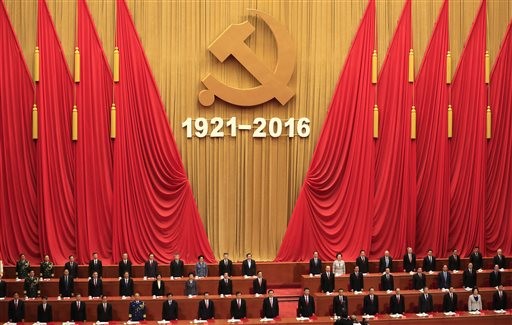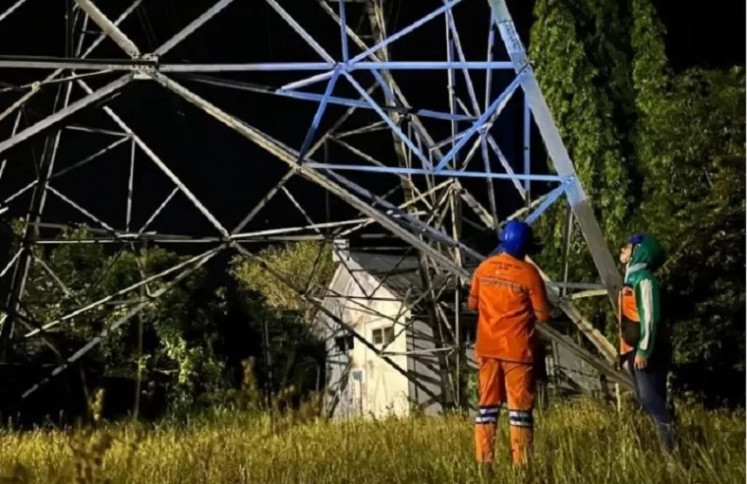Popular Reads
Top Results
Can't find what you're looking for?
View all search resultsPopular Reads
Top Results
Can't find what you're looking for?
View all search resultsINSIGHT: China's presence and its engagement in Indonesia
Since many of our leaders studied in the West and are more accustomed to the Western system, there is a certain trepidation when it comes to dealing with something new like the Chinese way of doing things.
Change text size
Gift Premium Articles
to Anyone
T
he article in The Jakarta Post on Nov. 24 on the increase in China’s foreign direct investment (FDI) in Indonesia by a staggering 291 percent (US$1.5 billion) from January to September met with a positive response. This is very good news for Indonesia’s economy, which needs the FDI to keep growth between 5 and 5.5 percent in 2016, and hopefully reach 6 percent in 2017.
This development silenced previous critics who claimed China’s promised FDI worth tens of billions of dollars would only be partially realized. Now it promises to grow much more in the future. Indonesia should undoubtedly welcome the dramatic rise of FDI from China, because we do need it, and China might be one of the few sources left that are truly interested in investing in Indonesia and have the means to do so.
Indonesia has to be serious because the 5 percent growth that we have achieved so far is still inadequate to cope with the influx of over 2 million new workers, which might need 7 percent annual growth. In addition, Indonesia may need more investments as its exports have weakened due to the slowdown of the economies of its counterparts. More so if we are thinking of eradicating poverty and economic inequality in society. For that reason, Chinese FDI will be a critical part of Indonesia’s program to achieve these goals.
For once this is a period in which FDI from China is truly substantial, and we have to be positive about it and prepare the people, especially entrepreneurs and small and medium enterprises (SMEs). There was a period in our history when China as a communist country was looked upon with fear, whereas on the Chinese side, there were worries about anti-Chinese sentiment in Indonesia. We now understand that China has changed a lot, and that its socialism with a Chinese character is no longer applied in the same way it was before the reforms introduced by chairman Deng Xiaoping in 1978.
In the event that problems arise from the presence of Chinese labor in Indonesia in implementing the projects, careful discussions should be held and agreements made prior to final decisions. An expected problem is the language gap. There is also a need to improve the productivity of Indonesian labor to make the implementation of the projects viable.
Both Indonesia and China should reach mutual understanding regarding potential problems that may arise in their partnership, including a better understanding from the Chinese side about political issues in Indonesia that tend to be nationalistically inclined. The willingness to compromise on both sides whenever necessary may create a lot of mileage that will make the Comprehensive Strategic Partnership a reality.
Since many of our leaders studied in the West and are more accustomed to the Western system, there is a certain trepidation when it comes to dealing with something new like the Chinese way of doing things. China is a big power in East Asia now and seemingly this change is partly due to it becoming an important partner of Indonesia. Furthermore, China is a close neighbor and Indonesia opened its diplomatic relations in 1950, shortly after the PRC was founded in 1949.
Indonesia and China have worked closely since the resumption of our diplomatic relations in 1990, developed good rapport and trust in each other in all our endeavors, from the top down to the working levels, from government to think tanks, businesses, the media and even NGOs.
We should relate to each other as we do with others, including with the US. Why can we entertain and study the Trans-Pacific Partnership (TPP) with the US as the leader but cannot move forward the Regional Comprehensive Economic Partnership (RCEP), which ASEAN proposed in response to the TPP initiative and is now being pushed by China? We have to study all these initiatives carefully and base our discussions on the merits of the case.
The TPP now has an uncertain future, while the RCEP can be developed further as there is the need to move trade as a prerequisite of economic growth while the RCEP is ready to be pushed and concluded in the near future. We should come together to support it.










